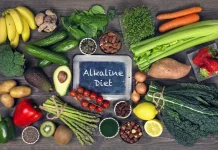Magnesium might not be the first nutrient that comes to mind when considering a healthy diet, but ensuring an adequate intake of magnesium-rich foods is vital for optimal health. This is particularly important for runners, who may require higher amounts of magnesium than the general population.
So, why do runners need more magnesium? This essential mineral plays a pivotal role in regulating muscle and nerve function, as well as influencing blood sugar levels and blood pressure. Magnesium aids in post-training muscle recovery, prevents muscle cramping, reduces fatigue, and even helps prevent injuries. Research indicates that the demand for magnesium rises with increased physical activity.
A balanced diet is the best way to boost magnesium intake. Leafy vegetables, whole grains, nuts, and seeds are excellent sources of magnesium, and some breakfast cereals are fortified with it.
“Magnesium is crucial for energy production, muscle recovery, and bone development,” says nutritionist Kim Pearson. “It also protects us from oxidative damage, which increases due to the energy produced during running.”
Magnesium benefits the entire body, supporting numerous enzyme reactions from bones to nerves and playing a key role in brain function.
Is Magnesium Beneficial for Runners?
The answer is a resounding yes. If you want to enhance your running performance, optimize recovery, reduce fatigue, and regulate blood pressure, ensuring sufficient magnesium levels is essential. Additionally, magnesium is believed to help reduce the buildup of lactic acid during intense workouts.
 Recognizing Magnesium Deficiency
Recognizing Magnesium Deficiency
Identifying magnesium deficiency can be challenging since symptoms like fatigue and muscle cramps can stem from various causes. However, it’s important to monitor magnesium levels if you experience such symptoms, as prolonged low levels can lead to health issues like osteoporosis. Those at higher risk include individuals with gastrointestinal diseases, type 2 diabetes, the elderly, and those with inadequate dietary magnesium intake.
If you experience symptoms such as nausea, weakness, twitching, cramping, or irregular heartbeats, consult your GP to check your magnesium levels and other essential nutrients.
Daily Magnesium Requirements
Before turning to supplements, try to increase magnesium-rich foods in your diet. According to the NHS, the recommended daily intake for adults aged 19-64 is 300mg for men and 270mg for women.
“Incorporate leafy greens into your meals, as they are rich in magnesium,” suggests Pearson. “Add a handful of spinach to your post-run smoothie or a salad. Kale and various nuts and seeds are also high in magnesium.”
Foods High in Magnesium
- Spinach
- Whole wheat
- Almonds, cashews, and peanuts.
- Dark Chocolate
- Quinoa
- Edamame
- Black beans
- Yogurt
- Avocado
- Tofu































